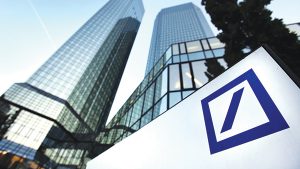Bloomberg
The world’s biggest banks have already had to use about $30 billion of their own cash this year to fund loans for acquisitions and buyouts that they weren’t able to offload to investors.
The lenders have been forced to fund at least 15 deals in the US and Europe as inflation and risk of a recession evaporates investor appetite for risky corporate debt. The total tally, based on calculations using data sourced by Bloomberg, could nearly double over the coming months as more deals are scheduled to close.
While it’s not uncommon for banks to self-fund deals when market sentiment sours, the sheer amount of hung debt — including $3.9 billion for Apollo Global Management Inc.’s purchase of Brightspeed and more than $8 billion for a buyout of Nielsen Holdings Plc — is deterring banks from making new financing commitments.
“Risk departments are going to be loathe to allow banks to make additional commitments and balance-sheet risks going forward,†said Steven Oh, global head of leveraged finance at Pinebridge Investments LLC. “There still are going to be some LBO transactions, but it’s going to be hard because it’s going to be more costly — and the banks themselves are less likely to provide guaranteed underwriting.â€
That’s a problem as private-equity sponsors sit on a mountain of deployable capital and fear of a recession ripens public markets for takeovers. Private-equity funds had about $1.2 trillion on hand as of mid-2022, according to data from Pitchbook.
Moreover, banks have about $43 billion of US high-yield bonds and leveraged loans in the pipeline, with about $30 billion expected to launch by the end of the year, according to an October 17 report by Deutsche Bank AG.
That includes the $12.5 billion original financing package for Elon Musk’s buyout of Twitter Inc., which banks led by Morgan Stanley are on the hook to fund, as well as $5 billion of debt for Apollo’s buyout of Tenneco Inc.
In Europe, underwriters are sitting on €1.5 billion ($1.5 billion) of term loans to fund the buyout of Unilever’s tea business Ekaterra, which has yet to launch. Earlier this month, banks led by ING Bank NV pulled a €274.3 million loan supporting Dutch-based artificial grass maker TenCate Grass Holding BV’s takeover of Hellas Construction Inc.
Even as Asia’s fledgling leveraged loan business booms, a takeover of Toshiba Corp. — which could be the region’s biggest buyout this year — is at risk of slipping behind schedule. Bidding groups are struggling to secure financing commitments from banks, Bloomberg reported this week.
With the amount of hung debt already in tens of billions, some are looking to private credit markets to fill any gaps — though there’s also been some pullback there as well.
Still, the year is providing a once-in-a-generation opportunity for private credit to increase market share, said Todd Koretzky, a partner in the leveraged
finance group at Allen & Overy.
“It’s a perfect storm of opportunity and readiness,†he said. “The moment that the broadly-syndicated market was dislocated, the private credit funds were ready with large amounts of capital and the ability to write checks.â€
Sponsors have also embraced other maneuvers. Private-equity firms have announced new acquisitions in recent weeks without debt financing in place, effectively backstopping the entire purchase price with cash from their own funds.
 The Gulf Time Newspaper One of the finest business newspapers in the UAE brought to you by our professional writers and editors.
The Gulf Time Newspaper One of the finest business newspapers in the UAE brought to you by our professional writers and editors.
